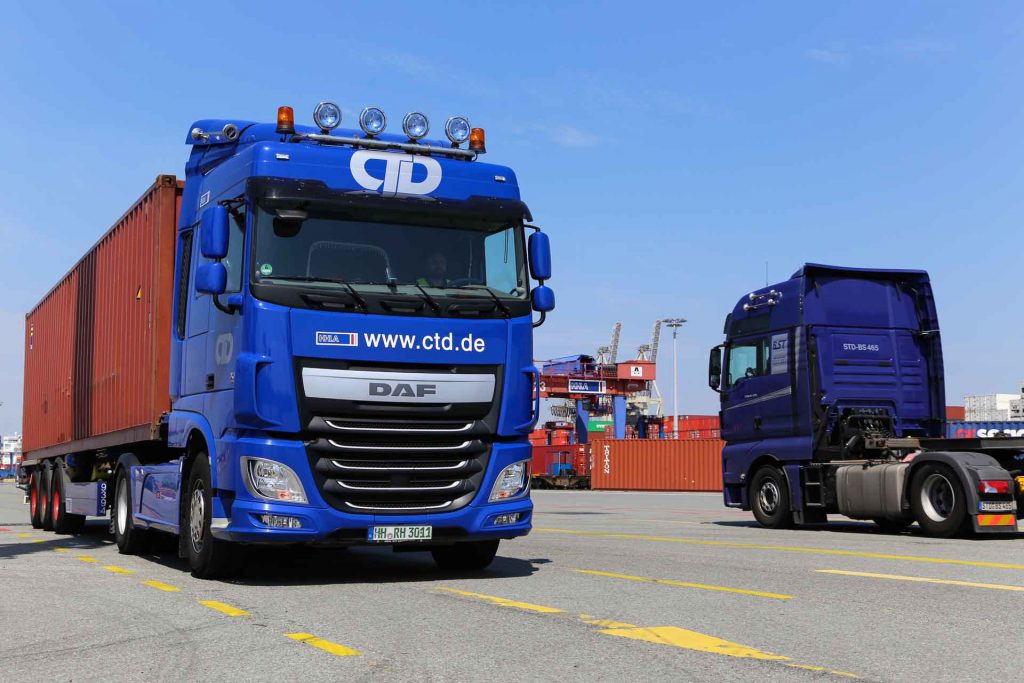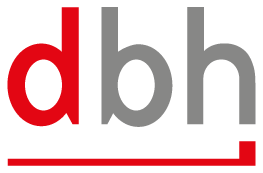A German joint solution for the digitalized release process of import containers is being developed by the service providers DAKOSY AG, Hamburg, and dbh Logistics IT AG, Bremen, both of whom specialize in port community systems. By the end of the year, the first shipping companies and forwarders will be connected to the platform, which will be henceforth marketed under the label “German Ports.”
DAKOSY and dbh have laid the foundation for standardizing and digitalizing the release process for import containers in the German seaports of Hamburg, Bremerhaven, Bremen and Wilhelmshaven. The application offers multiple options for the release process, providing users with choices in technology and processes.

DAKOSY and dbh are now making blockchain technology available to their users for the first time. Blockchain’s suitability and practicality for the release process has already been confirmed as part of the IHATEC research project ROboB. Another incentive for the rapid implementation of this project is the high level of interest among carriers in digitalizing the release process.
Getting started with the new process is easy for carriers, forwarders, transport companies and terminals alike. Dirk Gladiator, authorized officer of DAKOSY, explains, “Our solution for the digitalized release process is based on existing platforms and processes that are already being extensively used by the stakeholders in German seaports.” The application will be available in both the Hamburg and Bremen Port Community Systems. In Hamburg, this will be integrated into the Import Message Platform (IMP), and in the ports of Bremen and Wilhelmshaven, as a part of the Business Integration Platform (BIP).
“Parallel to the proven IMP and BIP platforms, we are building the framework for blockchain in order to make it available as a hybrid alternative in the next step. We are already preparing the test phase,” says Holger Hübner, Head of Port Solutions at dbh, outlining the concept and assuring that “digitalized releases meet all requirements for security and verification of identities.”
Until now, release orders have generally not been communicated digitally, but exchanged between parties in the traditional ways via fax, e-mail or telephone. “The manual process causes a lot of extra work for everyone, as the players have to engage in bilateral dialog for each individual container to organize authorizations and empty container returns,” concur Hübner and Gladiator.
With the use of the established IMP and BIP platforms and the optional addition of blockchain, the strict requirements for access authorizations and secure IT processes have now been met. Release is a sensitive process, as the release order entitles the holder to release the container, which often contains goods of considerable value.
Background information
About the release process: Basically, a release or release order exchanged between the parties involved authorizes a pick up of goods at the container terminal. The process is started with the forwarder’s release request to the shipping company. The shipping company releases a container as soon as the corresponding invoices for the transport have been paid and sends the so-called release order to the forwarder as his customer, which authorizes the forwarder to pick up the goods. The forwarder instructs his service provider (e.g., a trucking company or rail operator) to collect the container from the terminal. For this purpose, he passes on the pick-up authorization to the service provider in the form of the release order. The service provider must identify himself at the terminal with the release order to receive the container and bring it to its destination. The terminal receives the release order directly from the shipping company and checks whether it matches the order presented by the driver when he arrives to pick up the goods.
About dbh Logistics IT AG
Since its establishment in Bremen in 1973, dbh has developed into one of the leading IT companies for software, consulting and solutions in the areas of port management, Customs and foreign trade, compliance, transport management, SAP and managed IT services. dbh is the developer and operator of the Port Community Systems (PCS) in the ports of Bremen and Wilhelmshaven, providing a neutral and open electronic platform that enables the intelligent and secure exchange of information between public and private institutions in the port.
Contact: Martina Silva / Marketing, dbh | Phone: +49 (421) 30902-106 | E-Mail: presse@dbh.de | http://www.dbh.de
About DAKOSY Datenkommunikationssystem AG
As one of the leading software companies for logistics, DAKOSY has been offering digital solutions for international freight forwarding and Customs clearance as well as supply chain management for nearly 40 years. In addition, DAKOSY operates the Port Community System (PCS) for the Port of Hamburg and the Cargo Community System (FAIR@Link) for Frankfurt and Hamburg Airports. All companies and authorities involved in import and export processes can use these digital platforms to handle their transport processes quickly and in an automated manner.
Contact: Katrin Woywod – PR / Marketing, DAKOSY | Phone: +49 (40) 37003320 | E-Mail: woywod@dakosy.de | http://www.dakosy.de/

